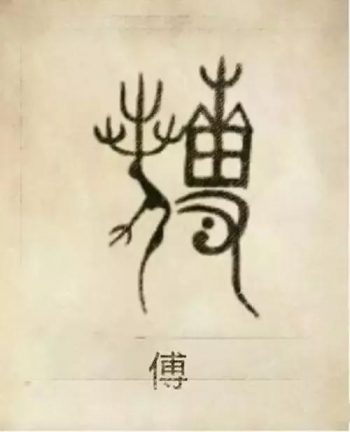The Fu(fù) surname is one of China’s most storied family names, embodying the resilience, intellect, and multicultural heritage of Chinese civilization. For readers curious about Chinese history and culture, the Fu surname’s journey—from ancient sage-kings to modern innovators—offers a Interesting window into China’s past and present.

Ⅰ、Origins of the Fu Surname
1. From a Legendary Sage:
The most celebrated origin traces back to Fu Yue, a visionary slave-turned-prime minister during the Shang Dynasty (1600–1046 BCE). According to legend, King Wu Ding dreamed of a sage who could revive his declining kingdom. Eventually, Fu Yi (present-day Pinglu, Shanxi) discovered Fu Shuo, who was a slave. and appointed him as his advisor. Fu Yue’s reforms ushered in the "Wu Ding Revival," a golden age for the Shang. His descendants adopted "Fu" from "Fu yan" as their surname.
2. Royal Ancestry:
Another branch originates from the Yellow Emperor’s descendants. A noble named Dayou was granted the territory of Fu Yi in Shanxi during ancient times, and his family adopted the name.
3. Ethnic Integration:
During the Northern Wei Dynasty (386–534 CE), the Xianbei ethnic group’s "Haogu" clan adopted "Fu" as part of China’s cultural assimilation policies.
Later, Manchu clans like Fucha and Langjia also adopted "Fu" during the Qing Dynasty (1636–1912).
4. Simplified Surnames:
Some Fu families evolved from ancient compound surnames (e.g., "Fu yang") or adopted the name from official titles like "Grand chancellor".
Ⅱ、Historical Figures:
1. Politics and Military:
Fu Kuan: A founding hero of the Han Dynasty (202 BCE–220 CE), serving as its first chancellor.
Fu Jia: A master strategist of the Three Kingdoms period, instrumental in establishing the Wei-Jin Dynasty.
Fu Youde: A Ming Dynasty general who helped unify China under Emperor Hongwu.
2. Culture and Academia:
Fu Xuan: A Jin Dynasty philosopher and poet advocating Confucian principles, author of Fu Zi.
Fu Shan: A polymath of the Ming-Qing transition, renowned for his scholarship, medicine, and calligraphy.
3. Modern Contributions:
Fu Zuoyi: A military leader and hydroengineering expert who facilitated Beijing’s peaceful liberation.
Fu Lei: A literary giant who translated Balzac and Romain Rolland into Chinese;His family letters, <Fu Lei's Family Letters> have become a classic in education.
Fu Min: A key scientist in China’s lunar exploration program.
Ⅲ、Cultural Significance:
1. Family Teachings:
The Fu Family Instructions, compiled during the Qing Dynasty, emphasize filial piety, diligence, and humility, shaping ethical standards for generations.
2. Ancestral Halls and Symbols:
Xing Shang Hall: Honors Fu Yue’s legacy of wisdom and governance.
Sun-Drying Books Hall: Celebrates Fu Long, a scholar who "stored books in his mind," symbolizing intellectual depth.
3. Genealogy and Rituals:
Ancestral temples in Shanxi and Hebei serve as pilgrimage sites for Fu descendants. Generational names like "Benevolence, Justice, Wisdom" reinforce family unity.
Ⅳ、Social Impact:
1. Migration Patterns:
Originating in Henan and Shanxi, the Fu clan spread to Shandong and Gansu during the Han Dynasty (206 BCE–220 CE). Later migrations during the Ming Dynasty (1368–1644) expanded their presence across northern and southeastern China.
2. Modern Distribution:
With 6.1 million bearers, Fu ranks 53rd in China, concentrated in Henan, Shandong, and Hunan.
3. Global Influence:
Fu families migrated to Southeast Asia during the Ming-Qing era and later to Europe and North America. Notable overseas Fu descendants include tech entrepreneurs and academics, bridging Chinese and global cultures.
4. Cultural Iconography:
In modern media, "Fu" often symbolizes elite status—think "CEO Fu" in dramas—a nod to its historical gravitas and contemporary sophistication.
Conclusion
The Fu surname is a living chronicle of Chinese civilization. From Fu Yue’s ancient reforms to Fu Min’s lunar breakthroughs, Fu descendants have balanced tradition and innovation for millennia. Today, the Fu legacy thrives globally, proving that cultural heritage and modernity can coexist harmoniously.